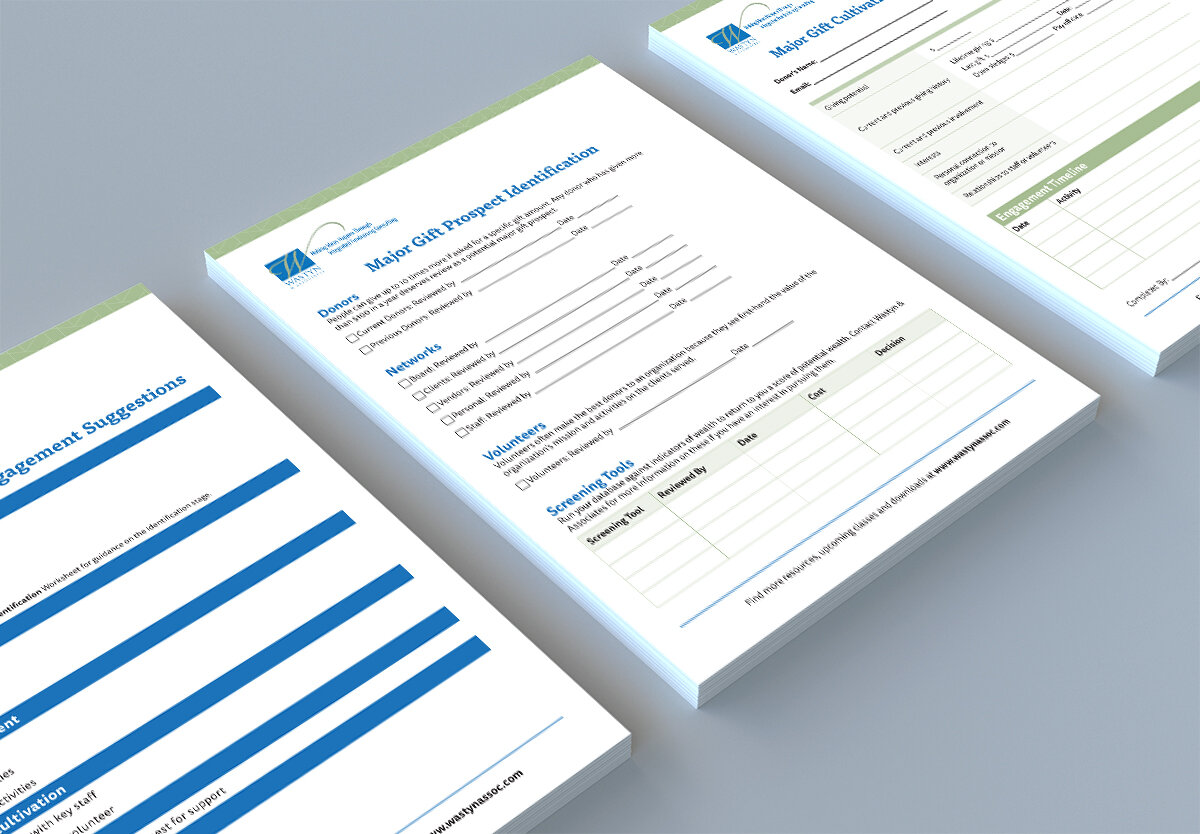Tales from the Field: What You Don't Know Can Hurt You
Guest Blogger: Lynette McLaughlin, Senior Consultant for Research Services, Wastyn & Associates
If I had a dollar for every time I've heard...... "We don't have the time nor can we afford to do prospect research on our donors or potential donors” I’d have $1 million to give to my favorite nonprofit. (O.K., maybe not quite that much, but you get the idea).
Unfortunately, many development offices do not use research to understand the giving capacity of their prospective donors because they believe they can’t afford to set up a research department. But the truth is, you can’t afford not to have some level of research.
Now, in reality can your organization survive without donor research? Perhaps, but the difference could mean a gift of $100 versus $100,000 to your organization. Today, donors or potential donors expect major gift officers to do their homework; they want to know that you know them.
Imagine meeting with a constituent and learning afterward that he is the wealthiest person in his community. Imagine the advantages of learning as much about the person as possible beforehand. Then, imagine the edge you’ll have by knowing your prospect’s true passion that coincidently aligns with one of your institution’s strategic goals. Lastly, imagine an easier path to securing the resources needed to further your organization’s mission.
Instead of viewing prospect research as a "luxury" for those development offices that have large budgets, it should be considered the invisible, yet indispensable arm of every major gifts program. Prospect research isn’t about finding the rich people; it’s about finding the RIGHT people.
Below are 6 easy steps to guide you through:
Contact Information: Home/work address, phone, e-mail
Personal Background: Family, education, employment and career achievements
Capacity: Salary, real estate, company ownership
Hobbies/Interests: What is the time spent beyond family and career? What are they passionate about?
Connections: Who is the prospect’s circle of friends/colleagues?
Inclination/Interest to give: Are they involved in your organization? What other causes do they support?
Now you’re probably saying to yourself at this point, “That’s all well and good, but where in my already stretched budget will I be able to do the above research?” In the 20 years I’ve been doing prospect research, I’ve had the luxury of working roughly 13 years in well-supported prospect research departments in health care and higher education which means that I typically didn’t have to worry about finding low cost or free prospect research resources. But a few years ago, I started doing freelance consulting work on a tighter budget, and I realized I needed to brush up on more “budget friendly” resources. There are a lot out there – beginning with your own donor database that should have much of this information for your major donors and prospects, I’ve found a few others that I always rely on the most, and they are included in Your Guide to Major Gift Fundraising e-course.
One final thought to always remember when doing prospect research, it is not a license to act as a private detective. Your research must be sensible, prudent, tenacious and above all else, sensitive to the donor as an individual. When faced with what you feel might be an ethical dilemma, consider how any action or use of information would impact your organization’s relationship with the prospect or donor, because in our line of work, it is “all about the relationship.”
When it comes down to it, we are all stretched for time and resources within our organizations, but it’s important to remember to focus that limited time and resources toward finding and cultivating prospects who are passionate about what your organization does and who can make those game changing gifts. Through good prospect research you can find those folks!
Your Guide to Major Gift Fundraising
This e-course brings together the best of our #FundraisingFriday videos and Nonprofit Tips and Tidbit blogs with downloadable resources – many of them available only through this class – in one easy to follow format to which you can refer again and again.
Lynn lives in Davenport with her husband and son and has a passion for research! Read more about her background and how she can help your organization learn more about its donors and prospective donors here.

